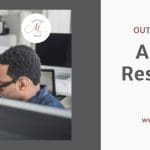Transitioning from Entrepreneurship to a 9-5 Career with Confidence
9 to 5 Job vs. Entrepreneurship – Career Transition
The road from Entrepreneurship to 9-5 can be overwhelming, just like the initial journey into entrepreneurship. Transitioning from business ownership to becoming an employee might seem like a significant shift backward, but it’s common and, depending on the situation, can lead to a fulfilling change. Take Alex Johnson, for example. He is a successful entrepreneur who spent over a decade building a thriving technology company from the ground up. Despite his success, he’s been interested in making a change. The demands of business ownership left minimal room for personal pursuits. After deep introspection, he has decided to pivot, aiming for a role offering fresh challenges and a healthier work-life balance. If you’re contemplating this transition, here is some guidance that may serve as a compass.
Know What You Want
It’s important to understand what you want. Sometimes, people call my office and say, “I want a resume that encompasses everything I’ve accomplished, but I don’t know what I want to do.” That can often be a recipe for failure. I always recommend thinking critically about what you want in your next career and whether or not you have the skills to land the job and succeed. Sometimes, that takes a career strategy session and asking yourself the right questions, but I do find that most people have an idea of their dream job.
How to Transition from Self-Employed to Employee? Consider Your Transferrable Skills
Simply put, transferable skills are the capabilities you take from one job to the next. Entrepreneurship requires the use of a plethora of competencies. Many are transferrable, including business development, financial management, team leadership, technical skills, client success management, and more. Do you have metrics that can be quantified? Can other professionals speak to some of these skills through a testimonial or reference letter? If any of your skills are highly valued in the job description, that’s one step closer to you becoming a viable candidate.
Present a Compelling Resume
For many, resume writing seems like a daunting task. It’s about strategically communicating your impact and articulating how your skills and experiences can be leveraged for the next company. Many people say, “I know what I did, but I don’t know how to make it sound good.” That’s where certified resume writers come into play. We hire people to do tasks we don’t have the time for or expertise in. Retaining a professional resume writer who is experienced, credentialed, and knows how to position you for that next-level opportunity is a good investment and the foundation of your job searching strategy.
Use Your Network for Transition from Self-Employed to Employee
Like Alex, you have likely built a solid professional and personal network. It’s okay to lean on your network and share your interest in making a change. According to HRTech Series, 71% of companies have a referral program, and according to Zippia, referrals are four times more likely to be offered a job than website applicants. So, use your network. You never know who may be linked to your next position and be an excellent referral for you.
Embrace a Learning Mindset
A learning mindset is when an individual considers every new experience as an opportunity to learn. It is said that people who possess this mentality can adapt to their surroundings better and absorb information. When you launched your business, you had a lot to learn, and as you start a new career, there will be opportunities to acquire new skills. Jump in, but do so with a plan.
For guidance on transitioning from entrepreneurship to a 9-5, let’s chat!





